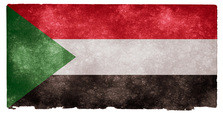
The Sudanese government has arrested six politicians in response to the signing, by political and military opposition groups, of a charter advocating regime change, the institution of a democratic and pluralistic federal system and the separation of religion and state.
Those detained include Professor Mohamed Zain Alabidein; Political Affairs Assistant to the Chairperson of the Democratic Unionist Party (DUP) the head of the Nasserite Unionist Party Jamal Idriss, and women’s rights activist Intisar Al-agli.
The New Dawn Charter was signed in Kampala on 5 January and charts a new vision for Sudan founded on such principles as democracy, social co-existence and recognition of Sudan’s religious diversity. The participants also agreed on the need to change the current ruling regime, but differed over whether this should be achieved politically or militarily.
The Sudanese government has reacted furiously to the Charter. Presidential assistant Mr. Nafei Ali Nafie accused the United States and European Union of funding and supporting it, and said the signatories had “dug their own graves with their own hands by adopting the agreement, as it is based on the rejection of the principles of Islamic Shari’a law.” Faced with this official reaction some signatories appear to be distancing themselves from the Charter and are expressing reservations regarding several clauses, including the issue of religion and state.
President Al-Bashir has repeatedly stated that Sudan’s new constitution would be 100 per cent Islamic. The president has indicated that “all parties, religious sects and Sufis” would be represented in the constitutional drafting committee; however, no further details have been given about its progress.
There is particular concern for the well being of Professor Alabidein, who was arrested in Khartoum Airport with two others, including DUP leader, Hisham Al Mufti, on their return from Kampala. The professor recently underwent surgery for cancer and was due to attend a medical appointment in the United Kingdom on 18 January. His family went to the National Intelligence and Security Service (NISS) in Khartoum on 11 January with clothing and medicine for him, but no further information on his current condition has been made available.
Andrew Johnston, Advocacy Director at Christian Solidarity Worldwide (CSW), said, “The people of Sudan have endured decades of war due to the attempts by one party to enforce a parochial, monochrome political vision on a diverse and vibrant nation. The signing of the New Dawn Charter by such a wide array of local actors underlines the divergence between the government’s vision and that of the majority of the Sudanese populace regarding Sudan’s new constitution and the way to ensure a peaceful, united state in which every citizen can prosper. The Sudanese government must allow for the expression of diverse opinions and undertake broad consultations during the drafting process in order to ensure that the new constitution is a genuine reflection of popular consensus and not a source of future tension. Furthermore, the new constitution should recognise the rights of all Sudanese citizens; including those from minority religious groups, as outlined in Article 18 of the International Covenant on Civil and Political Rights (ICCPR), to which Sudan is a signatory. CSW also urges the Sudanese authorities to release all those arrested following the signing the New Dawn Charter, to respect freedom of expression, assembly and association as detailed in articles 19, 21 and 22 respectively of the ICCPR and to ensure that Professor Alabidein receives the medical treatment he requires in a timely manner.”
The New Dawn Charter was signed in Kampala on 5 January and charts a new vision for Sudan founded on such principles as democracy, social co-existence and recognition of Sudan’s religious diversity. The participants also agreed on the need to change the current ruling regime, but differed over whether this should be achieved politically or militarily.
The Sudanese government has reacted furiously to the Charter. Presidential assistant Mr. Nafei Ali Nafie accused the United States and European Union of funding and supporting it, and said the signatories had “dug their own graves with their own hands by adopting the agreement, as it is based on the rejection of the principles of Islamic Shari’a law.” Faced with this official reaction some signatories appear to be distancing themselves from the Charter and are expressing reservations regarding several clauses, including the issue of religion and state.
President Al-Bashir has repeatedly stated that Sudan’s new constitution would be 100 per cent Islamic. The president has indicated that “all parties, religious sects and Sufis” would be represented in the constitutional drafting committee; however, no further details have been given about its progress.
There is particular concern for the well being of Professor Alabidein, who was arrested in Khartoum Airport with two others, including DUP leader, Hisham Al Mufti, on their return from Kampala. The professor recently underwent surgery for cancer and was due to attend a medical appointment in the United Kingdom on 18 January. His family went to the National Intelligence and Security Service (NISS) in Khartoum on 11 January with clothing and medicine for him, but no further information on his current condition has been made available.
Andrew Johnston, Advocacy Director at Christian Solidarity Worldwide (CSW), said, “The people of Sudan have endured decades of war due to the attempts by one party to enforce a parochial, monochrome political vision on a diverse and vibrant nation. The signing of the New Dawn Charter by such a wide array of local actors underlines the divergence between the government’s vision and that of the majority of the Sudanese populace regarding Sudan’s new constitution and the way to ensure a peaceful, united state in which every citizen can prosper. The Sudanese government must allow for the expression of diverse opinions and undertake broad consultations during the drafting process in order to ensure that the new constitution is a genuine reflection of popular consensus and not a source of future tension. Furthermore, the new constitution should recognise the rights of all Sudanese citizens; including those from minority religious groups, as outlined in Article 18 of the International Covenant on Civil and Political Rights (ICCPR), to which Sudan is a signatory. CSW also urges the Sudanese authorities to release all those arrested following the signing the New Dawn Charter, to respect freedom of expression, assembly and association as detailed in articles 19, 21 and 22 respectively of the ICCPR and to ensure that Professor Alabidein receives the medical treatment he requires in a timely manner.”


 RSS Feed
RSS Feed